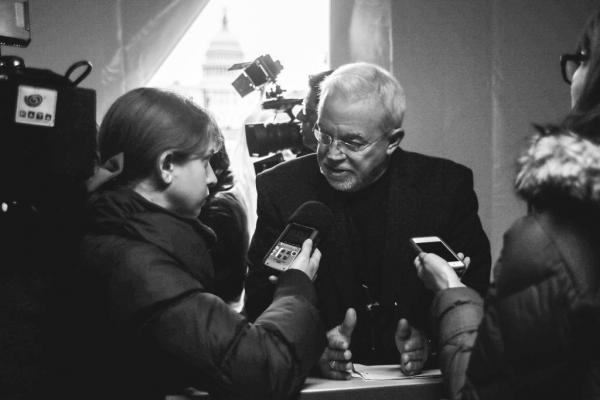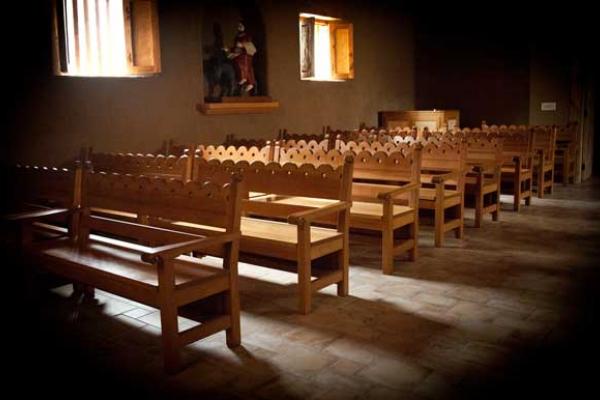Listen as Sojourners CEO Rob Wilson-Black asks Jim Wallis about his recent fast for immigration reform.
Now that Dec. 25 is over, the real war on Christmas can begin.
Because, you see, that other “War on Christmas” that begins in late November and ends on Dec. 25 is a manufactured war. That war is fabricated by a television network that, despite the Bible’s repeated message at the birth of Christ to “not be afraid,” wants Christians to live in fear of some secular agenda to destroy Christmas. After all, there’s nothing like fear and a manufactured war to raise television ratings.
That’s a manufactured war because, as Diana Butler Bass has brilliantly pointed out, the season from late November to Dec. 24 isn’t Christmas. It’s Advent. If anyone were waging a war on a Christian season during the early part of December, it wouldn’t be on Christmas. It would be on Advent.
The real war on Christmas begins on Dec. 26, but no major television network will tell you about it. The real Christmas season, known as Christmastide, begins on the evening of Dec. 24 and lasts 12 days, ending on Jan. 5.
Merry what? Just in time for Christmas, new statistics show “no religion is the new religion” in Great Britain, according to a study released Monday.
The study, by Westminster Faith Debates, finds 38 percent adults in Great Britain, and 48 percent of those ages 18 to 29, checked no religion in online surveys conducted in January and June by YouGov.
These numbers fall midway between the findings of two other British studies that both show a trend away from the pews.
We’ve created a Christmas monster: a grotesque assemblage of pagan, Christian and capitalist symbolism into something that resembles something we’re both attracted to and repulsed by at the same time. We’re fueled by an admixture of both guilt and greed, while the domestic economy pins its annual hopes on our propensity for spending far more than we have or want to spend.
All in the name of baby Jesus.
It seems that we have no means of escaping the vortex of materialism, partly because whoever is the first not to buy gifts is the cheap jerk who throws the whole transactional nature of gift-giving out of whack. But one Christmas, a few years back, my wife, Amy, and I had finally reached our limit. We were in the midst of our Financial Peace budget slim-down and Christmas spending was an obvious target.



